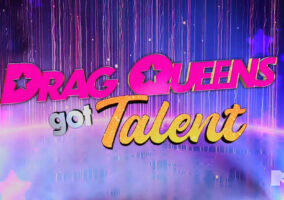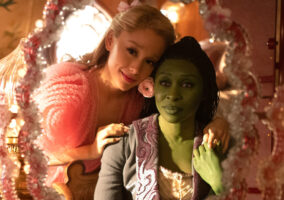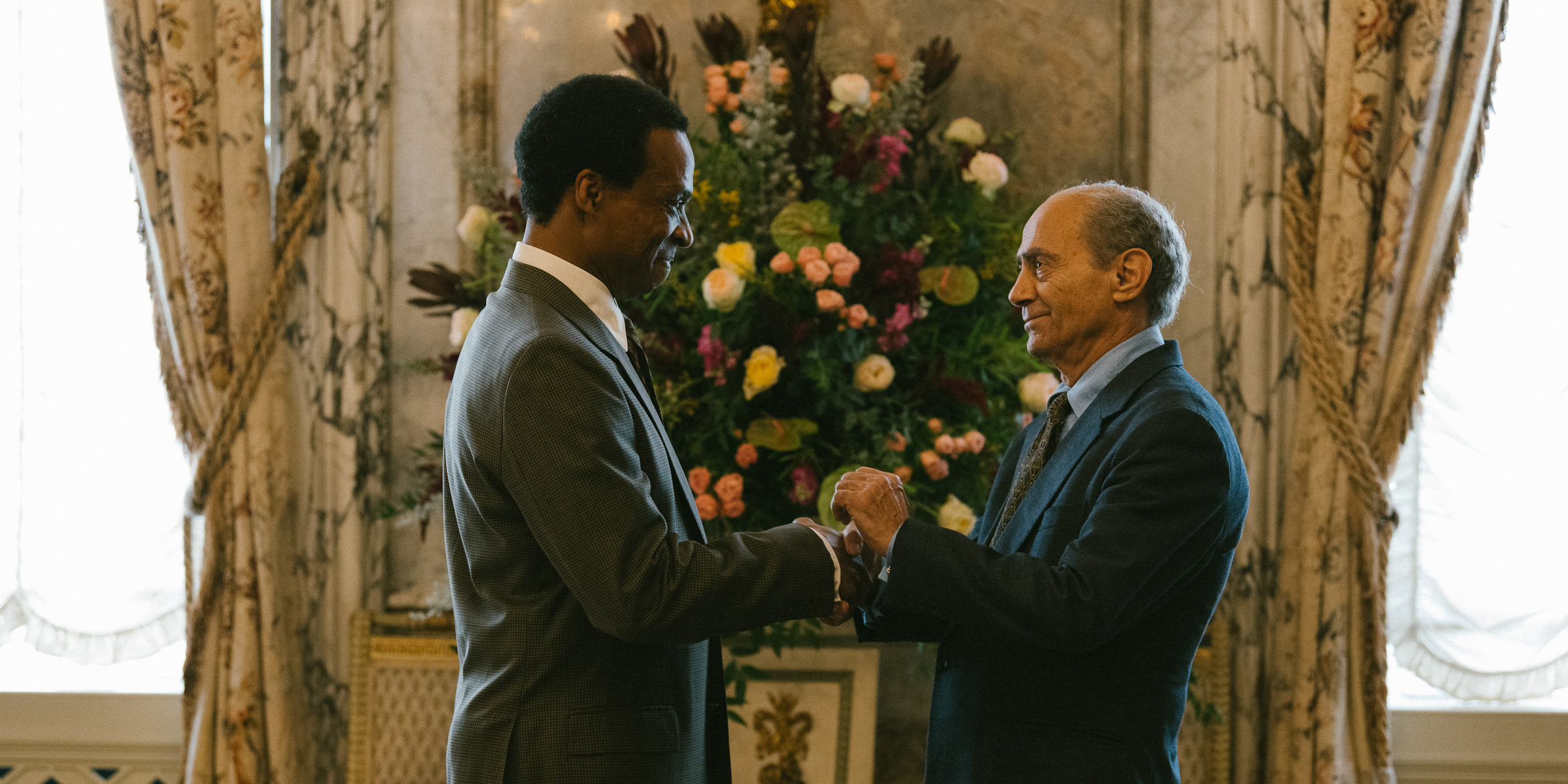
Episode 3: “Mou Mou”
“I shall call you… Dodi.” And before the opening credits are rolling, we’re cringing a little. We are extremely conflicted about this episode. We’re not sure an entire hour of The Crown devoted to Mohamed El-Fayed was needed for this season, not least because we’re three episodes in and there’s already a bit too much of a focus on Diana and all the drama surrounding her, which is the only reason to spend any time on the Fayeds. On the other hand, it’s not necessarily a bad thing to let the show cast its net a little wider, especially if it gives space to tell stories of people who aren’t members of the aristocracy and, more importantly, aren’t white. On the other, other hand (good thing there are four hands between us), the stories of Mohamed and Dodi Fayed aren’t necessarily all that interesting and their connection to the crown really only comes down to their roles in the final days of Diana’s life, which tends to give the focus on them a slightly morbid quality. Here’s the origin story of how Mohmmed Al-Fayed bought the Paris Ritz, the last building Diana entered. On the other, other, other hand (this concludes the hand-based assertions in today’s recap), the focus on Sydney Johnson, the former Duke of Windsor’s valet, was something of a pleasant surprise. Once again, showrunner Peter Morgan makes use of The Crown back bench, bringing back Alex Jennings for a cameo as the bored, effete Duke, as entitled and exiled as ever. These returns, like Claire Foy’s in the first episode this season and Vanessa Kirby’s in the episode following this one, do a great job of underlining the length of time covered by Elizabeth’s life and allow the show a sense of continuity even as it switches out entire casts every two seasons.
After a somewhat rushed introduction depicting Mohamed’s youth in Alexandria (and a brief encounter with royalty that feels a little too clever and pat, thematically speaking), marriage to his first wife, and birth of his son Dodi, we get an admittedly pretty great scene of the businessman strong-arming his way through a meeting with the owners of the Paris Ritz and buying the place practically on sheer force of will and personality. At the grand opening of the hotel, he asks Dodi to fire the only Black man serving on the floor. Actor Jude Akuwudike does a wonderfully subtle job of portraying Johnson’s embarrassment and hurt but keeping such a tight lid on it that it’s practically imperceptible. Mohamed reconsiders when Dodi tells him that Johnson used to be the valet to the former king of England. He asks him to be his personal valet and teach him to be a proper English gentleman, through the lessons taught to Johnson by the Duke of Windsor himself. There’s a lovely sequence of Johnson passing along the exact lessons the Duke taught him thirty years before, from which books to read to how to pour tea to the importance of socks and golf. In essence, he’s recreating a mini-Duke of Windsor in the Egyptian businessman. It might be a bit too on-the-nose for the show’s overriding theme of the royal family being figures of enormous importance to millions of people around the world, but Fayed did buy and refurbish Villa Windsor and clearly pursued the most conservative and traditional routes of power in English life. He was, for a time at least, just another royal family fanboy at heart. “Everything in British society begins and ends with the royal family,” Johnson teaches him, adding that by being seen with them, “all doors will open everywhere else.” There is a certain poignancy in these scenes of two men of color so feverishly emulating the customs of the white British aristocracy. There’s a lot of history and colonialism underlying scenes like these, but the show is either unwilling or, more likely, unable to explore them with any real nuance. Instead, the Windsors once again are presented as unattainable, nearly god-like figures to the lowlies.
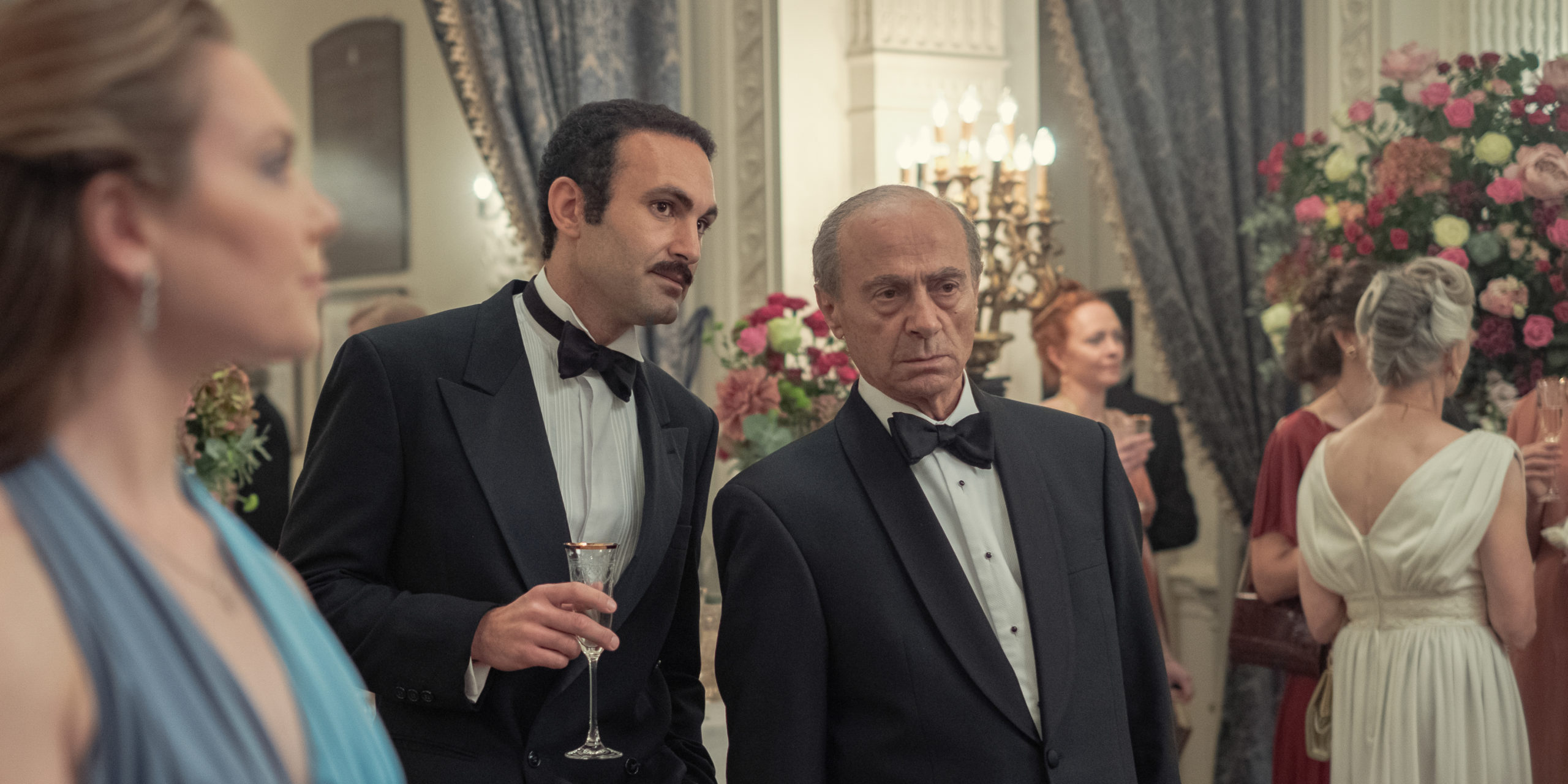
At a royal-attended racing event, Mohamed is annoyed to be informed by Sydney that only the sponsor of the event, who is described as Harrods largest shareholder, is granted the privilege of sitting with the queen. In a scene that stretches credulity, Sydney is called upon by Mohamed to explain to his partners why purchasing Harrods is a good idea for the businessman. “Harrods is part of the national soul and the very fabric of what it is to be British,” he tells them. “Owning Harrods is like owning the Tower of London or Westminster Abbey.” Dodi is upset that his father is planning on spending 600 million pounds on the department store and wonders if he’ll have any money left to fund his own dreams of being a movie producer. Somehow, he must have convinced his father, because we’re treated to scenes of the filming of Chariots of Fire along with footage of the Oscar ceremony where the film won for Best Picture. This all feels like a Wikipedia entry expanded to an hour of television that can’t fully connect itself to royal family without showing serious strain. Oh, and Mohamed also buys Harrods, but you probably knew that already.
But just as the episode starts cracking from the strain of not really being about the ostensible point of the series, the royals come roaring back in, albeit somewhat peripherally; first, in a tacky sequence depicting the Duchess of Windsor’s death and the dirt hitting her coffin as members of her husband’s family stand respectfully by. Sydney reminisces about the house, which prompts Mohamed to buy it. They really should’ve just titled this episode “Mohamed Al-Fayed Spends a Shit-Ton of Money.” This brings us back to our mixed feelings about this episode, because yes, it centers the perspectives of two men of color, but one of them is insanely wealthy and both of them absolutely revere the royal family, which means we’re not exactly being treated to a refreshingly new perspective. There’s no escaping the feeling that it’s all setup for telling the story of Diana’s death. Anyway, Mohamed completely refurbishes the villa and invites the Queen to come visit. “Don’t you dare,” Philip says emphatically as soon as the idea is considered. There’s no question that she won’t be visiting, but the Palace arranges to have a not-insignificant number of items removed from the house and returned to them. The Queen Mother has pretty much nothing to do at this point (in the story but also in history), so it was nice to see her snap back to life and insist on the items’ return, her half-century-plus enmity toward her brother-in-law still as strong as ever.
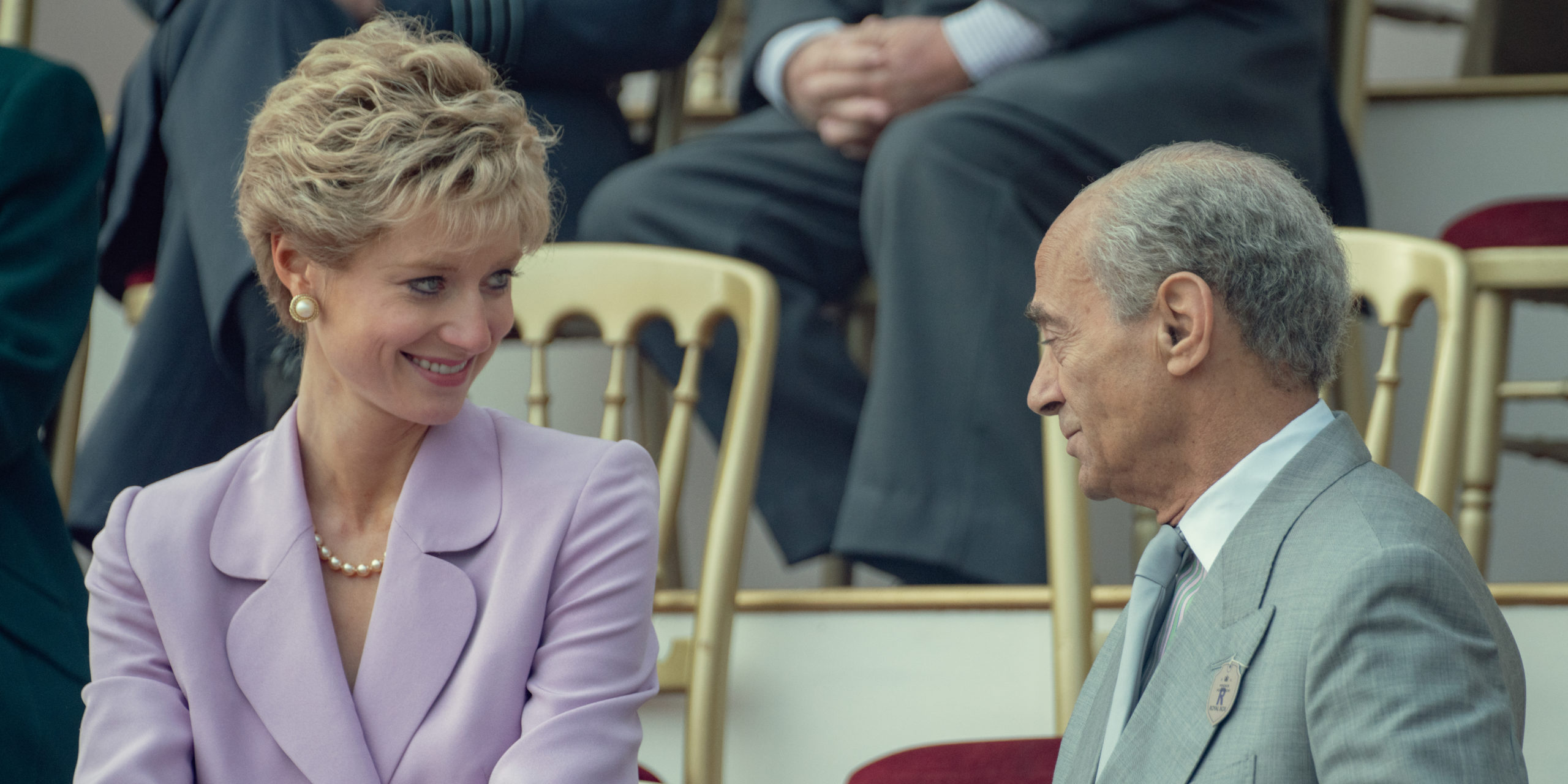
Sydney dies shortly after, with Mohamed tending to him like a family member. It’s a lovely and poignant close to a relationship that started off ugly. Whether any of it is true to the actual events is beside the point, since we’re all agreed that this is fiction, yes? It made for a nice scene. Mohamed hosts a racing event in the expectation that the Queen will sit with him as she sat with the former white owner of Harrods, but she finds the first opportunity (Margaret) to ditch the responsibility. Rather ominously, Diana fills the seat and winds up charming Mohamed to the extent that it seems like a friendship is blooming. She does this by immediately telling him all of her troubles and woes, which seems to be how the show insists on portraying her. To be fair, Debicki is extremely charming in this scene and Diana was known for being able to turn the dazzle on and off on a whim. To increase the sense of doom, Dodi introduces himself to her and the Queen observes “That seems to have worked out well.”
Episode 4: “Annus Horribilis”
After an episode looking at the royals from the outside comes one of the most intensely intimate portraits of the entire Windsor family at a moment of crisis and vulnerability, which means high drama is on the menu. In some ways, this has to be seen as the centerpiece episode of the entire season. When you think of the British royal family in the ’90s, you think of three things: the string of ugly family divorces, the death of Diana, and the Queen’s “Annus Horribilis” speech. For the most part, we’d say they nailed the particulars on this one, even if there’s a sense that they focused on the wrong things, as well as an understanding that we’re deep into fictional territory with some of these scenes.
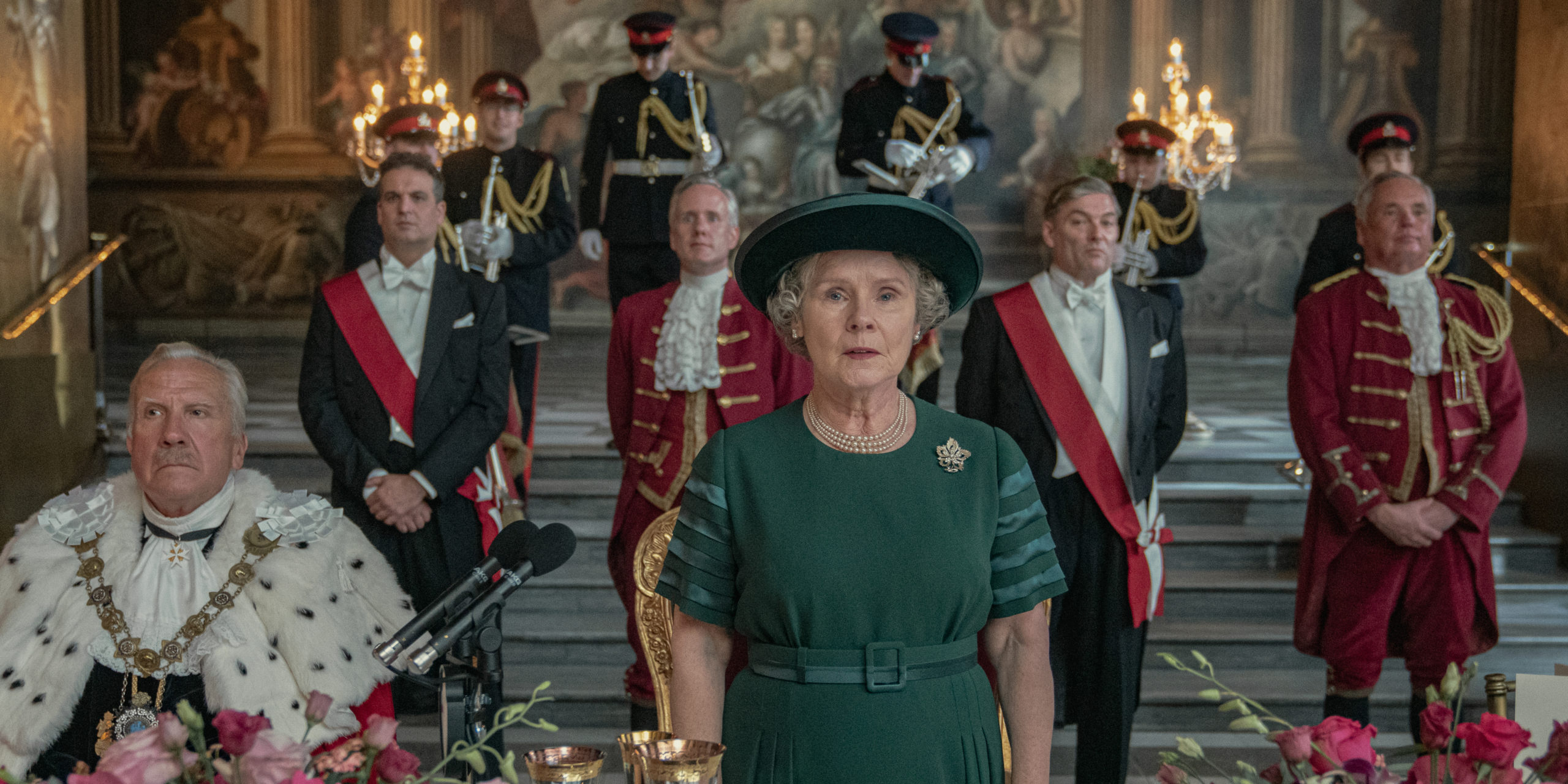
We open with the rare sight of Elizabeth fighting back tears. She’s on the way to the Guildhall to make the speech that will come to define this entire decade for her. Helpful television announcers tell us that she’s had a terrible year and that she may not receive the forgiveness she is expected to ask for, which makes it sound like she committed some sort of horrible crime. This takes us to a flashback earlier in the year, with the focus on Princess Margaret. Like the once-a-season “Philip is restless” episode, it’s time for the “Margaret is bitterly unhappy” one. We don’t necessarily protest having to sit through scenes of Lesley Manville doing her best haughty, nor did we have a problem when Helena Bonham Carter was asked to trod similar ground in seasons 3 and 4. We particularly loved when Manville as Margaret snapped at her maid to stop fussing with her hair, called her an imbecile, and then spent another minute fussing with her hair. In each of these crown-adjacent episodes, the show tends to take the most pleasure in skewering the subjects a little bit more than they would the Queen herself, who is rarely portrayed as anything but completely sympathetic. We call it “gilding the Lilibet.” Charles, Philip, Margaret and now to a certain extent, Diana all stand in as criticisms of the royal family without having to take the leader too much to task. This episode even obliquely refers to this (and tries rather weakly to explain it) by comparing Margaret, Diana and Andrew, of all people, as people just too wild and free for royal life to contain. While there are some enjoyably tense and well-acted scenes, a good deal of this episode felt disappointingly like royal fanfiction; full of scenes of people saying things to each other we’d like to think they’d have said, without much reason to believe any of it is close to reality. Not that there’s a problem with the show being fictionalized, but it tends to become less interesting when the story seems designed to check off a bunch of boxes or make connections or observations that feel just a bit too pat and easy, like people looking at their lives from the outside instead of living them, if that makes any sense.
Even if the show is on overly familiar ground, it’s still fun watching Manville in her scenes, from being a bit flirty and pretentious with a radio announcer to practically eye-fucking Timothy Dalton from across a ball room. Returning to the Peter Townsend story is exactly the kind of fanfic storyline we’re referring to (mostly because it allows the show to repeat the same themes and observations about Margaret), but it’s hard to deny the fun of two talented sexy seniors with great chemistry trying to tamp down on a fire long thought cold. It was also a pleasant surprise to see Vanessa Kirby and Ben Miles return to their roles briefly.
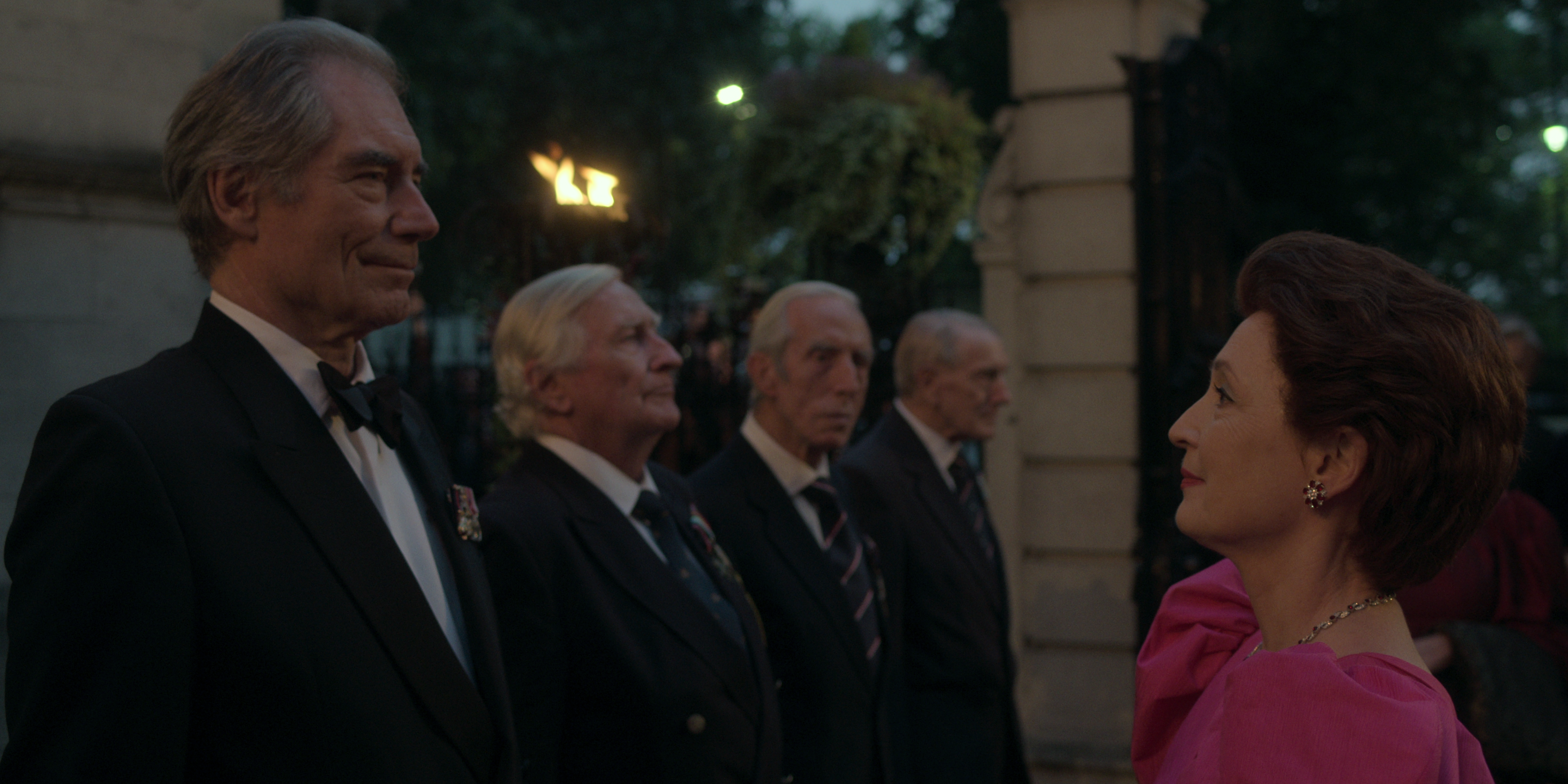
Elizabeth is, of course, immediately dismissive of the news that Peter has contacted Margaret after 35 years and tries to suggest that they were never in love. She comes off horribly in this scene, but she gets to have her big come-to-Jesus moment before the end. She will also come off fairly badly in her scene with Princess Anne, although it’s interesting to see how differently she treats each of her children (and in return how differently they treat her) when each of them come to her with marriage news. Anne simply will not allow anyone to stop her from remarrying and she makes that perfectly clear before ending the conversation. She’s probably the only one of Elizabeth’s children who could get away with that. Charles pouts, as he’s prone to do, but he gets more than a few stinging insults in (not least that she would have had her children taken away from her by protective services had she not been queen) before she pulls the sovereign card and shuts him down. And Andrew charms his way through the tawdry tales of Fergie’s infidelity, even bringing the queen to giggles over the matter. While it’s interesting to see these scenes play out in such different ways, they do tend to underline the somewhat unbalanced focus of the series. Margaret and Philip are always cast with the kind of actors that more or less require their own spotlight episode each season. You just don’t bring in Lesley Manville or Helena Bonham Carter or Jonathan Pryce unless you plan to really use them. And of course any season of The Crown dealing with the 1990s can’t help but be heavily tilted toward the Wales drama. The focus on these storylines are easily explained, but they leave a huge deficit in telling the stories of Anne’s divorce and remarriage and especially Andrew’s messy marriage, which generated nearly as many headlines as Charles’ and Diana’s back in the day. It’s so odd to see Elizabeth and Andrew talk about what great fun Fergie is and how much they love her laugh when we the viewers have never seen her except in the background.
Anyway, it all comes dramatically to a head with the fire at Windsor castle, in an impressively shot scene that must have cost a fortune. Elizabeth and Philip stand in the literal wreckage of their lives while Peter informs Margaret that he doesn’t have long to live, inspiring each of them to silently declare their undying love for each other in a lovely scene that only managed to be so by the strength of the actors in it. Margaret is once again devastated by thoughts of what could have been and angrily confronts her sister, taunting her that she or Diana might have had good reason to want to burn down her castle. Manville and Staunton are honestly fantastic in this scene, even if we’ve seen it play out in every season. Elizabeth offers an incredibly weak “I denied you as your queen, not as your sister” defense, which infuriates Margaret even more. She gets in a great line about how there must have been countless times Elizabeth thought she never could get through it all without Philip by her side, which Staunton reacts to as if she’d been slapped. Margaret also makes the obvious point that Princess Anne’s remarriage is exactly the thing that she was denied. This is where the dialogue and observations start sounding a little facile to us, even if they do lead to great scenes.
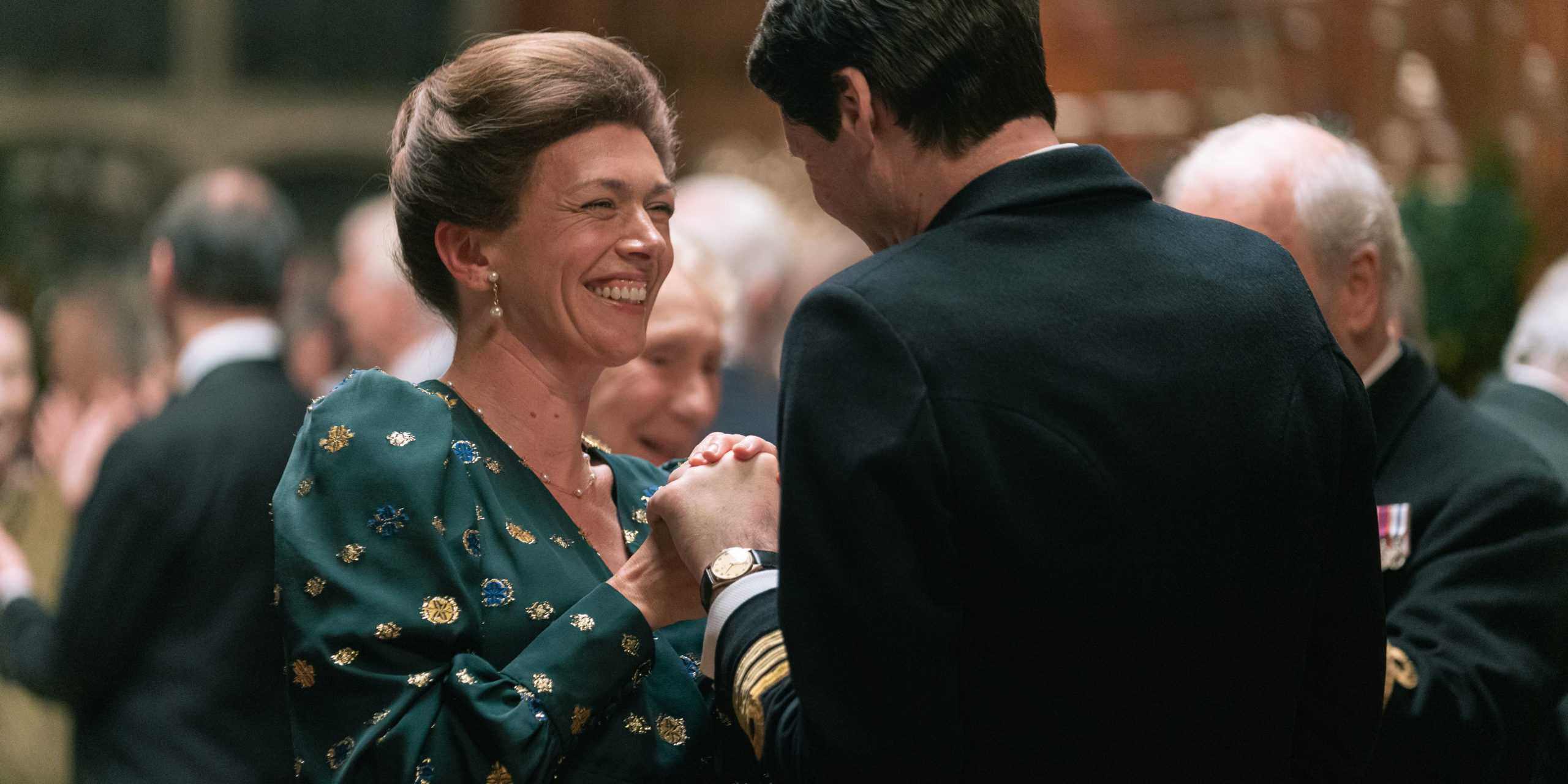
The Queen Mother confronts Elizabeth (there are more angry and emotional confrontations between family members this episode than in entire seasons of the show) about her plans to make the “Annus Horribilis” speech, appalled and offended that any member of the family, let alone the sovereign, would complain about her lot in life to her subjects. “You know the three questions we ask ourselves,” she reminds her daughter. “Does it need saying? Does it need saying now? Does it need saying by me?” It’s another really great scene with some snappy dialogue, but the way it tends to reinforce the same themes and character tropes the show has been hitting since day one makes it feel just a little too writerly. We don’t entirely buy that Philip would lead the charge to defend Elizabeth’s right to publicly complain about her life, but like we said, it was a fun scene to play out. We keep pointing out how… shall we say theatrically the story played out because it’s perhaps worth knowing that the speech Elizabeth gives at the end of the episode is extremely different from the actual Annus Horribilis speech, which was not focused on the mistakes her family has made. We don’t expect The Crown to be a documentary, but we do tend to find it a less interesting experience when it deviates from the well-documented and public aspects of the royals in order to service story lines and character arcs. Then again, when we get Imelda Staunton and Leslie Manville declaring their love for each other and then immediately promising never to do something so “middle class” ever again, just how much can we complain? The Crown might just be coasting a little bit this season, but we can’t deny how well the casting is serving the show.
THINK PINK! Valentino Pink PP Shoe Collection Next Post:
The Country Music Awards 2022 Red Carpet Rundown
Please review our Community Guidelines before posting a comment. Thank you!

